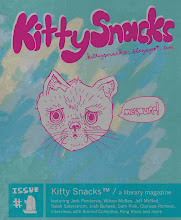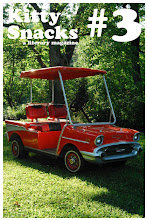Dear Sister,
I have left you alone with them, and I am sorry. Don’t be angry. Please don’t be.
I am riding a castle in a moat the size of God, manned by men too stupid or too criminal for the navy. They deck themselves in ribbons, no shoes, their hair braided in patchy thrusts; and I dress as they do. Walk jack-hipped as they do.
My hands hurt from working the ropes and my nose bled twice and I miss you, but I am not discontented. In the morning, you should see it, how the day comes like horses. And at night the night is so black that my voice is the only proof I am here. At home we had our candle. Remember how we frazzed our lashes at it, and Mother noticed our bald lids? That was worth being whipped for, to feel the heat so close without going blind.
The captain, they say, wears a merkin. It is sinful to cut the private hair, but he has cut it; and his little wig sticks there, under the belly. I don’t know what color is the wig, nor does Ned, the boy who told me of it.
Ned with his rosy plumules, zit-ricked lad, scrubs daily with salt and cinder but no good, he is bad afflicted. Crab-face! yell the sailors and Ned rushes his hands to his cheeks. He is the only one on this castle who knows what I am. He came to me the third night, down in the hold where I lay crunched, and said very low, Are you a lady? and I said No, I’m a boy, and he said, You’re not a boy.
When the sea churns the green sailors fall to swithering. But the churn is nothing more bad than a quease from the monthly. Some of the boys cry. Boys young enough to cry are here, younger than we were when our hairs came. In sleep they call for their mothers; awake, they puke. Two are brothers, with heads the red of a schoolhouse, both sick from the minute we left shore. The younger can’t stop throwing up. The older is bony too, but his brother has shrunk to the bigness of a rabbit, no food in days, only spoonmeat. Being a soft creature, bred up in softness, he can’t stand the fling of the water. Ned advised to cut an eel into portions and feed the kid the raw bits; but the older refused. Instead he trickles biscuit into cups of milk, tilts them careful at his brother’s mouth.
Many of these boys are dotted with trout-lice, a worm like a clove or pin that sucks your moisture. I am nervous of getting a sug on me, so I wear all my clothes to sleep.
When we are bored, which is a lot, Ned tells stories from home. There lived in his road a keeper of bears, who cared for the sick or hurt or old ones that had been removed from the pit. I said what did he mean, pit? The bear-pit, he said. Our town has no pit, I said. It’s a hole in the ground where bears are, Ned explained, to be watched by the public. The public is not amused by sluggish animals; they want frisk and cavortion. So the bear-keeper tended the outcasts. Until one ate him. I don’t believe you, I said happily. I swear on my own grave, Ned said. He was found half-munched, by the man’s very daughter! Then you swear on water, I pointed out, because sailors have no grave but the sea. And water can’t be sworn on.
Poor sicklepod Ned, his cheeks coarse with oozy lobules—he is the kindest of any man I have met. This is thanks, I think, to his not being a man quite yet, no need of a razor. When I change between my two shirts, he looks away.
*****
To read the rest of On Water please see the print version of Kitty Snacks #2. You can purchase a copy by clicking the link on the right.
skip to main |
skip to sidebar

blog header photo by Jane Rule Burdine
blog footer by Will Bryant
nothing from this page may be reprinted without the author's consent.

blog footer by Will Bryant
nothing from this page may be reprinted without the author's consent.




